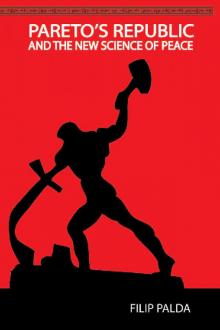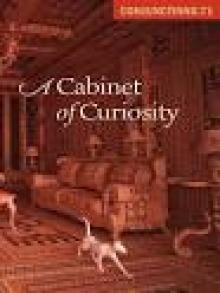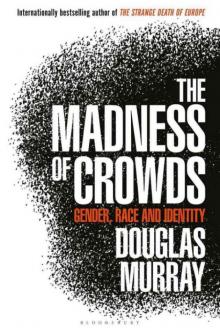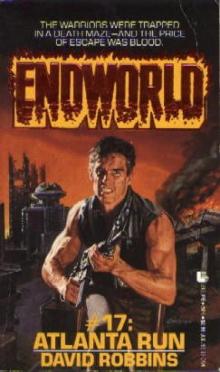Pareto's Republic and the New Science of Peace


Author: Filip Palda
Category: Other2
Published: 2012
Series:
View: 185
Read Online"Palda offers a novel and interesting perspective on ideas familiar to economists but which are not widely shared.This perspective will surely broaden the understanding of the political economy in which we live."
James M. Buchanan, Nobel Prize economics 1986
About his book, Palda writes, “No prerequisites are needed to understand it except a curiosity about a principle that might one day become humanity’s salvation.” I can attest that readers need not possess a degree in economics to find much that is worthwhile in Pareto’s Republic, even if I think the author is not skeptical enough about how helpful government can be in bringing about a peaceful society. But this book was not written with a reader like me in mind. It was not written to convince a libertarian to be a little bit more mainstream; it was written to convince the mainstream to become considerably more libertarian. As such, I can recommend it with few reservations and confidently assert that readers will find much valuable food for thought, and will enjoy thinking about it, if they read Pareto’s Republic. And yes, humanity’s salvation really does hang in the balance.
Bradely Doucet, Le Québecois Libre
Did you ever want to understand why some societies are prosperous and peaceful while others live in a torment of discord and poverty?
In this ground-breaking book Filip Palda, Ph.D. in economics from the University of Chicago, the school that has produced the most Nobel Prize winners in economics, explains in a clear and engaging manner for non-experts and economists alike why economics is the science of peace and prosperity and why these twin goals of every society are based on Pareto efficiency.
This is the first guide for the layperson to understanding how politics and economics unite to give us the recipe for success and to provide the warning signs of disaster.
Every page provides rich insights into the economics of taxation, the economics of politics (so called Public Choice theory), game theory, and many other parts of economics and delves into important historical episodes to illustrate why Pareto efficiency is the only feasible route to peace and prosperity. The book is intended for anyone with an interest in understanding economics.
James M. Buchanan, Nobel Prize economics 1986
About his book, Palda writes, “No prerequisites are needed to understand it except a curiosity about a principle that might one day become humanity’s salvation.” I can attest that readers need not possess a degree in economics to find much that is worthwhile in Pareto’s Republic, even if I think the author is not skeptical enough about how helpful government can be in bringing about a peaceful society. But this book was not written with a reader like me in mind. It was not written to convince a libertarian to be a little bit more mainstream; it was written to convince the mainstream to become considerably more libertarian. As such, I can recommend it with few reservations and confidently assert that readers will find much valuable food for thought, and will enjoy thinking about it, if they read Pareto’s Republic. And yes, humanity’s salvation really does hang in the balance.
Bradely Doucet, Le Québecois Libre
Did you ever want to understand why some societies are prosperous and peaceful while others live in a torment of discord and poverty?
In this ground-breaking book Filip Palda, Ph.D. in economics from the University of Chicago, the school that has produced the most Nobel Prize winners in economics, explains in a clear and engaging manner for non-experts and economists alike why economics is the science of peace and prosperity and why these twin goals of every society are based on Pareto efficiency.
This is the first guide for the layperson to understanding how politics and economics unite to give us the recipe for success and to provide the warning signs of disaster.
Every page provides rich insights into the economics of taxation, the economics of politics (so called Public Choice theory), game theory, and many other parts of economics and delves into important historical episodes to illustrate why Pareto efficiency is the only feasible route to peace and prosperity. The book is intended for anyone with an interest in understanding economics.
 A Cabinet of Curiosity
A Cabinet of Curiosity Polly and Her Friends Abroad
Polly and Her Friends Abroad The Mascot: A Fan & Player Baseball Romance
The Mascot: A Fan & Player Baseball Romance The Madness of Crowds
The Madness of Crowds Taken by the Thief
Taken by the Thief Viper's Nest
Viper's Nest Atlanta Run
Atlanta Run Would Be King
Would Be King